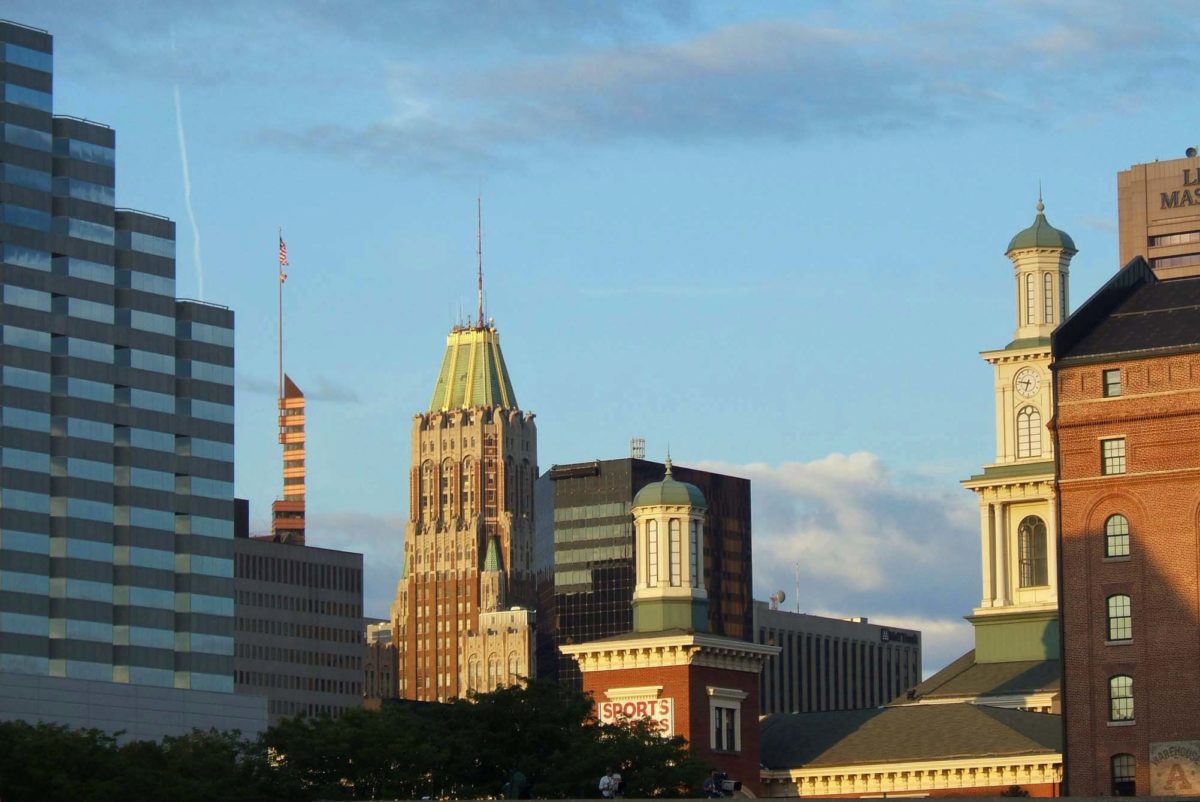Baltimore leaders are coalescing around a big vision to build a more inclusive tech economy over the next decade, but there will be many small steps required to get there.
It means involving the whole community. That’s why ecosystem-building org UpSurge Baltimore rallied more than 200 partners this year to center Baltimore’s growth as a tech hub through the lens of equitech. UpSurge launched in April with equitech as a framework for prioritizing startups and companies with diverse leadership, teams and products that address societal barriers. It also partnered with Techstars to bring an accelerator to Baltimore focused around that vision. Around the same time, it also launched UpSurge Teams to convene.
“We have a clear vision of where we’re going, but what we knew was important in terms of informing the steps to get there was having a broad coalition of people looking at that long term goal and thinking through the strategies from their expert points of view of how to get there,” said Jamie McDonald, CEO of UpSurge Baltimore.
UpSurge Teams gathered 210 civic leaders, entrepreneurs, academic experts, corporate officials and community builders from around the city (and even some from elsewhere) to share action steps and identify roadmaps for growth in specific tech categories. Together with UpSurge’s team, they spent more than 3,600 hours collaborating on 152 priorities and recommendations, all aimed at how the city can grow the tech community in a way that benefits all of its residents.
Working from a framing document and knowledge from background reading, teams convened over three-and-a-half months. The teams were organized around specific industry categories (i.e. consumer, climate, digital health, data, food and intelligence community entrepreneurship), as well as activities (e.g. attracting companies, spurring corporate partnerships, digital equity, talent development).
The result is a new report: Equitech 2030. It lays out timeframes across three categories: quick wins, systems change work over a decade and “moonshot” ideas that could reshape the city going forward.
Read the Equitech 2030 reportA few broad themes that emerged, McDonald said:
- Build momentum: In a variety of sectors within tech, the teams stressed the importance of momentum to grow and capture entrepreneurial energy.
- Incentives are key: When deciding to build a business in Baltimore, founders look at incentives offered in a particular area, and they can be an important tool for jurisdictions. Credits, grants and other mechanisms exist in Baltimore, but more is needed to improve access.
- “Map it — conveniently.” Teams called for making resources that can help entrepreneurs, including training, education, business-building guides and databases of local companies — easy to find, aggregated and mapped.
- Build networks: Formal and informal networks between all of the different stakeholders in an ecosystem will be important, the report states. These can be centered in areas like mentorship, placemaking and connecting startups and corporations.
- Start early: Education and exposure to tech career pathways must start from a young age, the teams believe. This means expanding access to coding, business and entrepreneurial education to introduce not just founder and tech roles, but also non-tech disciplines at a company. It also means creating more opportunities for role models to engage with youth.
- Spread the word: It will be important to get the word out about Baltimore and the equitech vision both in Baltimore, and beyond. These can be targeted messages both inside and outside the city around attracting companies, new investors or talent.
In some cases, leaders are already moving on specific strategies. In other cases, UpSurge will continue to support the efforts to move them forward. UpSurge sees itself as a convener, and wants to work “side-by-side” with those doing this work.
“We believe that the only way you accomplish a goal as ambitious as what we in Baltimore have, to build the country’s first equitech city, is with a lot of people working in collaboration,” McDonald said. “A report like this is a stake in the ground and it’s one moment in time. Without a doubt some of what we’ve identified in 2021 will evolve … but it is really critical that we continue to build a broad community of partners, supporters, colleagues and collaborators who are on this journey with us and with the city.”







